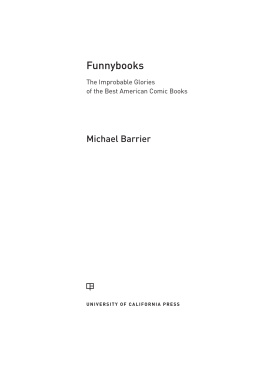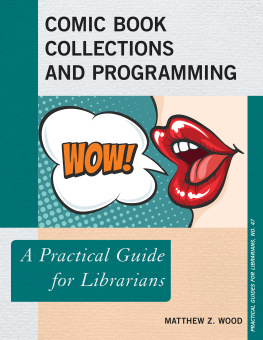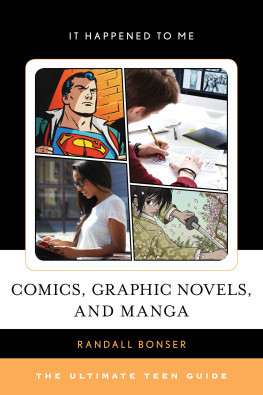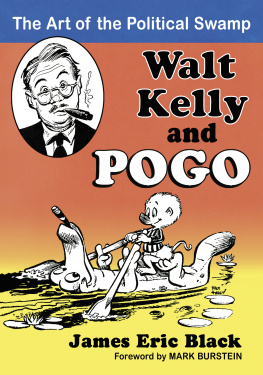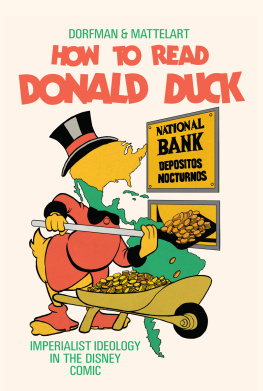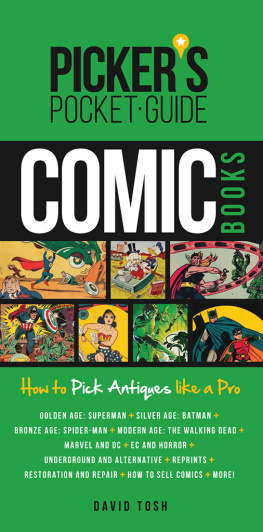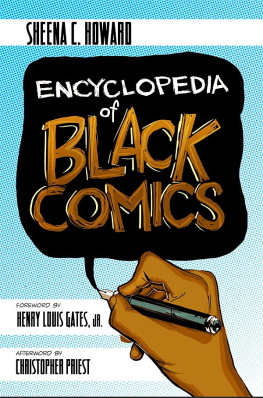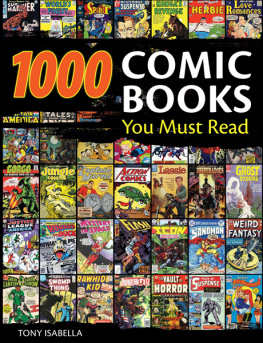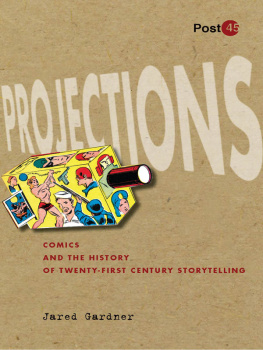Preface
I am sure there were people in mid-twentieth-century America who began reading comic books after they reached adulthood, but there cannot have been many such people compared with the millions for whom comics were among their earliest reading experiences. I was one such child, many years ago; I read aloud Walt Kelly stories in Animal Comics to my stuffed animals before I could make out the words. My childhood attachment to comic books was unusually strong. I dreamed of being a cartoonist, and I can remember clearly when and where I first saw many of my comic bookson a newsstand or in a variety store or at a friends homeeven though my memories of my teachers and classmates have dimmed almost to the point of vanishing.
Memories like mine are at once so commonplace and so particular to the person doing the remembering that there can be no point in devoting much attention to them here. What really matters about comic books, especially old comics like the ones from the 1940s and 1950s that are the principal subjects of this book, is whether they repay reading today, and not just by elderly people who want to bathe in nostalgia.
Funnybooks: The Improbable Glories of the Best American Comic Books is my answer to that question, and my answer is, of course, yes. A qualified yes, to be sure, since most comic books, from any period, have very little to recommend them. At two times, separated by about thirty years, I devoted hundreds of hours to reading and rereading old comics, trying to sift out the best of them. The first time was when the late Martin Williams and I were choosing stories to include in A Smithsonian Book of Comic-Book Comics (1982). I made my second and more intensive survey when I was writing this book. In both cases, nostalgia wound up playing no role in choosing storieseither to reprint, in the Smithsonian book, or to write about, in this one.
When I was a boy, I read every kind of comic book, as most children did, but the comics that attracted me most strongly, and that I read and reread, were produced by Western Printing & Lithographing Company and published under the Dell label. Dell Comics Are Good Comics was the companys slogan in the 1950s. Not every Dell comic was good, by any means, and certainly there were comic books from other publishers that repaid multiple readings; but, in work on this book, as when I was a child, I became aware of how distinct the Dell comics were from those of every other publisher, and how much better the best Dell comics were than almost all other comic books.
My initial plan was to cast my net wider, but eventually Funnybooks became a history of the Dell comic books, concentrating on the years before comics of all kinds fell under the censors axe and with only a nod to great cartoonists like Harvey Kurtzman and Will Eisner, whose work was for other publishers. Kurtzman and Eisner, and other artists like them, have already been the subjects of booksin some cases, many booksbut there has been no book like this one. At that, my book is only a partial history of Dell and Western Printing, so there are names missing from the index that many devotees of the Dell titles will expect to find, or to find mentioned more often. But although Dell published the work of many writers and artists who deserve to be admired, it published only a few whose work demands to be readCarl Barks ( Donald Duck ), John Stanley ( Little Lulu ), and Walt Kelly chief among them.
Dell never did more than dabble in superheroes, the genre that for many people has long defined what is meant by the term comic book. The absence of superheroes was a large part of Dells appeal for me. When I was a boy I never cared for any comics of that kind, except for a brief infatuation with the lighthearted Captain Marvel titles. More recently, I have come to appreciate the tongue-in-cheek quality of many of Will Eisners Spirit stories and Stan Lees early-1960s stories with the Marvel superheroes. But superhero comic books in general, and especially those with the more serious superheroes, like Superman and Batman, have always seemed to me hopelessly inferior to the best comics with funny animals like Donald Duck. I found a clue as to why I have felt that way in what a respected science-fiction writer has written
That is true, surely. But in the twentieth century, that longing for perfection was expressed not just in a benign form through Superman and the superheroes that followed him, each of them sharing a larger or smaller piece of Supermans perfection, but also in odious totalitarian ideologies that pursued perfection through mass murder. The longing for perfection is a deeply suspect longing, even when it comes cloaked in the innocent wish fulfillment that the superheroes have always offered.
I have always strongly preferred comic books with characters of a different kindfunny characters most of them, cartoon animals many of them, who on the rare occasions when they aspire to wisdom and power invariably reveal, with comical flourishes, their hopeless imperfectibility. Characters, that is, very much like their readers.
Michael Barrier
Little Rock, Arkansas
February 2014
A postscript: A book of this kind will inevitably contain at least a few errors. As they surface, I will post corrections on my website, www.michaelbarrier.com.
Acknowledgments
Like several of my earlier books, this book makes abundant use of the research that the veteran animator Milton Gray conducted with me and for me over many years, since I first began writing about the Hollywood animation studios and their comic-book offshoots in the 1960s. Milt, whose enthusiasm for classic hand-drawn animation has not flagged after decades as a highly regarded professional, also read the manuscript for this book, caught some mistakes, and, as always, provided encouragement and support when it was most needed.

